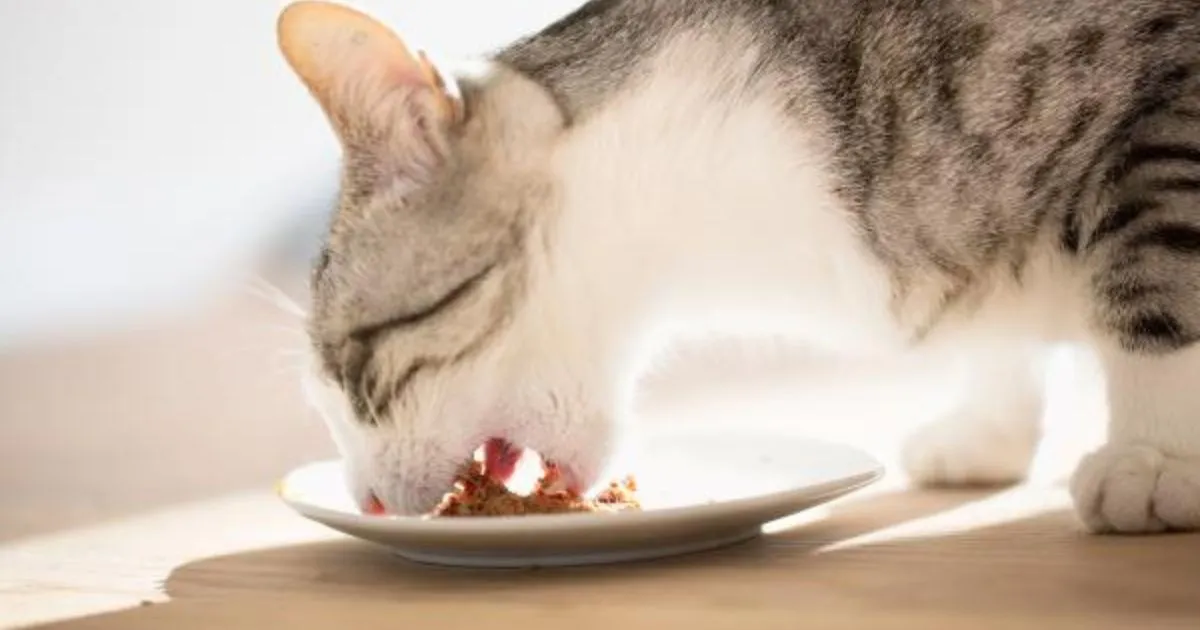Explore the safety implications of feeding raw salmon skin to cats. Learn about potential risks and considerations for your feline friend’s diet. As conscientious pet guardians, it’s crucial to comprehend our cats’ dietary requirements. One common question that arises is whether cats can safely consume raw salmon skin. In this article, we will explore the nutritional composition of raw salmon skin, the potential risks associated with its consumption, expert opinions on the matter, and alternative options for meeting cats’ dietary requirements.
Nutritional Composition of Raw Salmon Skin
Raw salmon skin is known to be rich in omega-3 fatty acids, which are beneficial for both humans and animals. It also contains essential nutrients such as vitamin D, vitamin E, selenium, and magnesium. However, it’s essential to evaluate how these nutrients align with cats’ specific dietary requirements.
Cats are obligate carnivores, which means they thrive on a diet high in animal proteins and fats. While raw salmon skin does provide certain nutrients, it does not fully meet the nutritional needs of cats, particularly in terms of essential amino acids and taurine.
Risks Associated with Raw Salmon Skin
Feeding cats raw salmon skin can pose several risks. Firstly, it may contain parasites or bacteria such as salmonella or listeria, which can cause foodborne illnesses in cats. Secondly, the high-fat content in salmon skin can lead to digestive issues and potential pancreatitis, a potentially life-threatening condition in cats. Lastly, the presence of any oils, seasonings, or marinades on the skin can introduce additional risks to a cat’s health.
Expert Opinions on Cats Eating Raw Salmon Skin
Veterinarians and animal nutritionists generally advise against feeding cats raw salmon skin. They highlight the risks associated with bacterial contamination, the potential for digestive disorders, and the imbalances in nutrients compared to cats’ specific dietary needs. Research studies and case reports have also demonstrated instances of cats developing digestive problems and salmonella infections after consuming raw fish, including salmon skin.
Precautionary Measures for Cat Owners
For cat owners intending to feed raw salmon skin, it’s vital to exercise caution. Ensure the fish is sourced from reputable suppliers, adheres to proper hygiene and freezing protocols, and is adequately prepared. Additionally, any skin fed to cats should be plain, without any seasonings or oils, and cut into small, easily digestible pieces to minimize choking hazards. However, consulting with a veterinarian before introducing raw salmon skin into a cat’s diet is advisable. Veterinarians can offer personalized advice based on the cat’s health status and specific dietary needs.

Alternative Options for Cat Diets
There are several safer alternatives to raw salmon skin that can provide cats with the necessary nutrients without the associated risks. Commercial cat foods containing fish or fish oil supplements are formulated to fulfil cats’ nutritional needs while reducing the likelihood of health risks. These diets are formulated to provide a well-balanced and complete nutrition profile, ensuring that cats receive all the essential nutrients they need for optimal health.
Conclusion
In conclusion, raw salmon skin may not be the best choice for cats’ diets due to potential health risks and nutrient imbalances. While it does contain beneficial nutrients, it does not align with cats’ specific dietary requirements as obligate carnivores. Avoid feeding cats raw salmon skin, opting instead for balanced nutrition provided by commercial cat foods or alternative options. As always, seeking advice from a veterinarian is crucial to ensure the health and well-being of our feline companions.
Frequently Asked Questions
Is raw salmon skin safe for cats to eat?
Raw salmon skin can pose potential health risks to cats. It may contain harmful bacteria, parasites, or toxins that can cause digestive issues or even lead to illness in felines.
Can raw salmon skin provide any nutritional benefits to cats?
While raw salmon skin may contain some nutrients beneficial to cats, such as omega-3 fatty acids, the risks associated with consuming it outweigh any potential benefits. Cats can obtain essential nutrients from other safer food sources.
What are the potential dangers of feeding raw salmon skin to cats?
Feeding raw salmon skin to cats can increase the risk of bacterial infections, such as salmonella or listeria, which may result in gastrointestinal upset or more severe health problems. Additionally, raw fish may contain thiaminase, an enzyme that can lead to vitamin B1 deficiency in cats.
How should I ensure the safety of my cat if they accidentally ingest raw salmon skin?
If your cat ingests raw salmon skin or any raw fish, closely monitor them for signs of illness. Look out for symptoms such as vomiting, diarrhea, or lethargy. Contact your veterinarian immediately if you notice any concerning symptoms, as prompt medical attention may be necessary to prevent complications.